Publications

Journal Article
Building Ethiopia’s food security resilience to climate and hydrological change
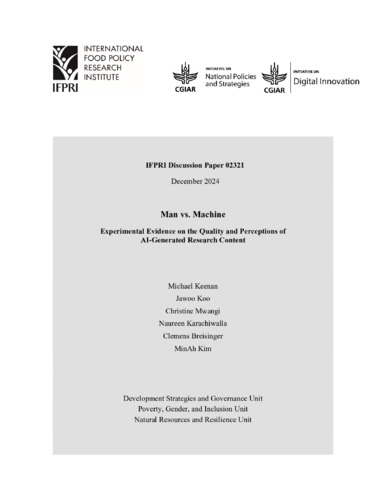
Working Paper
Man vs. machine: Experimental evidence on the quality and perceptions of AI-generated research content
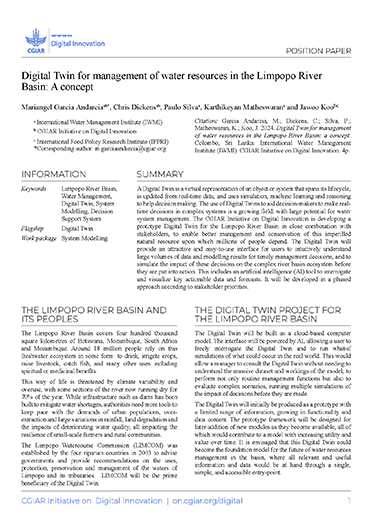
Other
Digital Twin for management of water resources in the Limpopo River Basin: a concept
Blogs

Trust the messenger? The role of AI transparency in policy research communication
Testing reader responses to chatbot- vs. human-written blog posts.
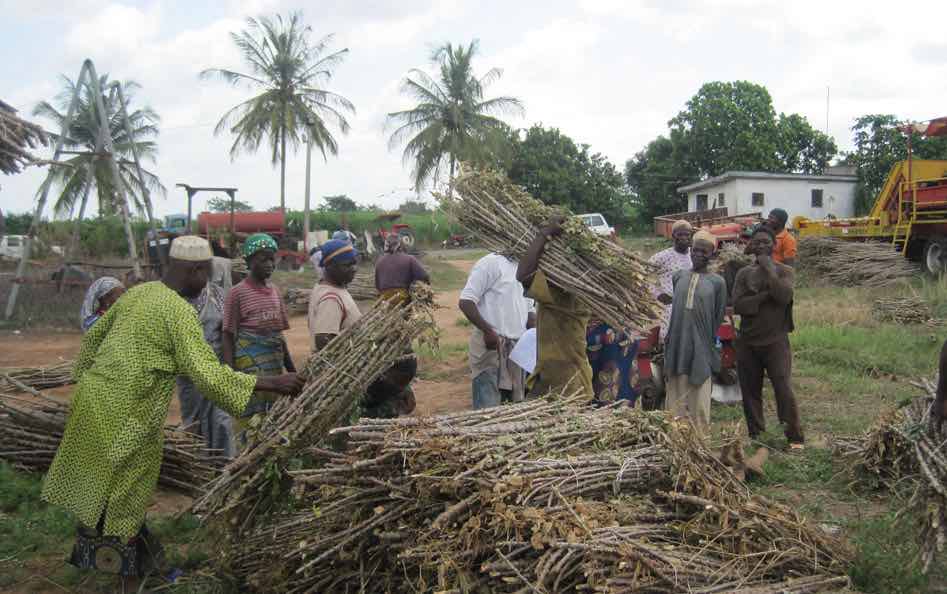
Can we trust AI to generate agricultural extension advisories?
A chatbot experiment.
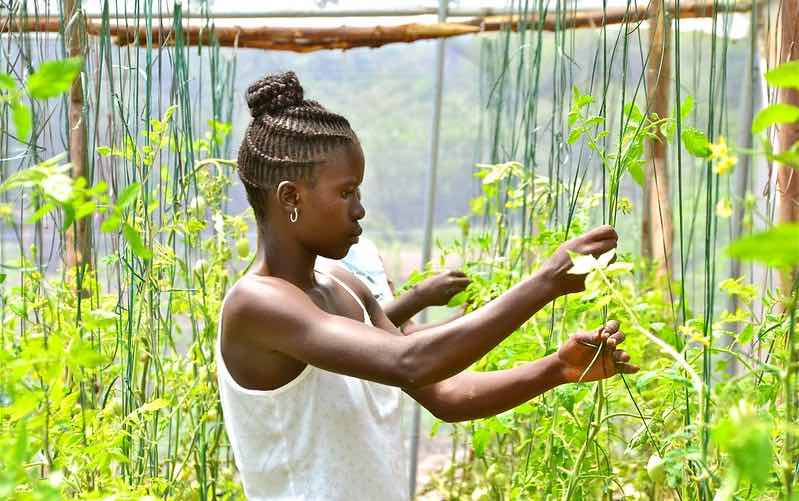
How can artificial intelligence-powered chatbots help policymakers? A roadmap for Kenya
Integrating AI into the policy process.
Events

IFPRI @ CGIAR Science Week
When humanity has faced its greatest challenges, science and innovation have provided solutions. Today, major and connected global challenges threaten the sustainability of food, land, and water systems, with the most vulnerable people and communities at greatest risk. Recognizing the urgency of these challenges, CGIAR and the Kenyan Agricultural and Livestock Research Organization (KALRO) are […]
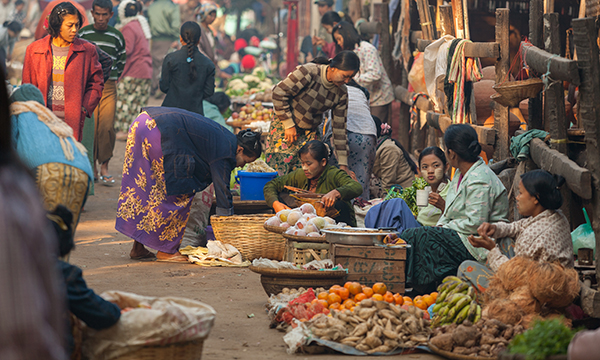
How Can We Improve Food Security Monitoring in Conflict-Affected Regions? Machine Learning for Spatially Granular Food Security Mapping
Machine learning is transforming agricultural and food security research, enabling more accurate and timely insights. The International Food Policy Research Institute (IFPRI) is advancing data-driven approaches in various domains, including crop-type mapping, maize yield estimation, and boat detection. These innovations demonstrate the potential of machine learning in addressing complex challenges and informing policy decisions. A […]
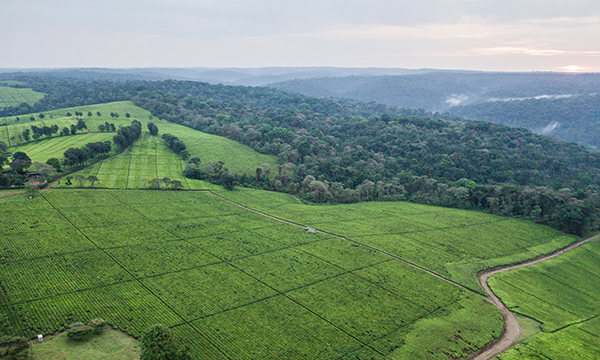
How can we improve global crop mapping? IFPRI’s Spatial Production Allocation Model (SPAM)
Accessibility to consistent, subnational, spatial information on crops globally will be hugely beneficial to researchers and policy makers. Researchers need this data to evaluate the benefits and costs of adopting new crop and livestock technologies, estimate the impact of climate change on agriculture calculate yield gaps, and analyze the historical evolution of farming systems. Policymakers, […]
News
Hewlett Packard Enterprise Advances the Global Food System Through Memory-Driven Computing With CGIAR (Digital Journal)
Digital Journal republished a press release from Hewlett Packard announcing a partnership with the CGIAR. Researchers need to generate a timely, high-frequency picture of what is happening in “food basket” locations – or areas of significant food production – around the world. A complete picture often requires data from multiple sources including crop performance, weather records, economic activity, […]
ECONOMÍA. Saocom: satellite data fill the void of dwindling crop tours (El Intransigente)
El Intransigente (Argentina) published an article stating that the pandemic is helping to usher in a new era of food-production forecasts that rely more on satellite data and artificial intelligence and less on information gathered by people. Rather than sending people to visit things, the market is looking for remote sensing. Still, there are shortcomings in some satellite […]
Is There an Algorithm to End World Hunger? (Food Tank)
Food Tank published a report recognizing the use of Big Data and innovative technology as “the next agricultural revolution.”




